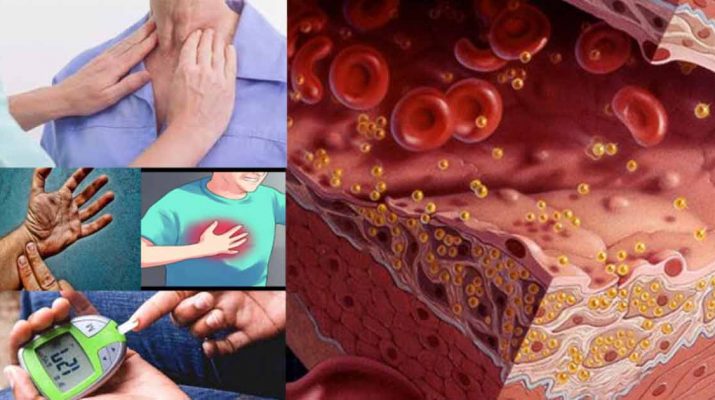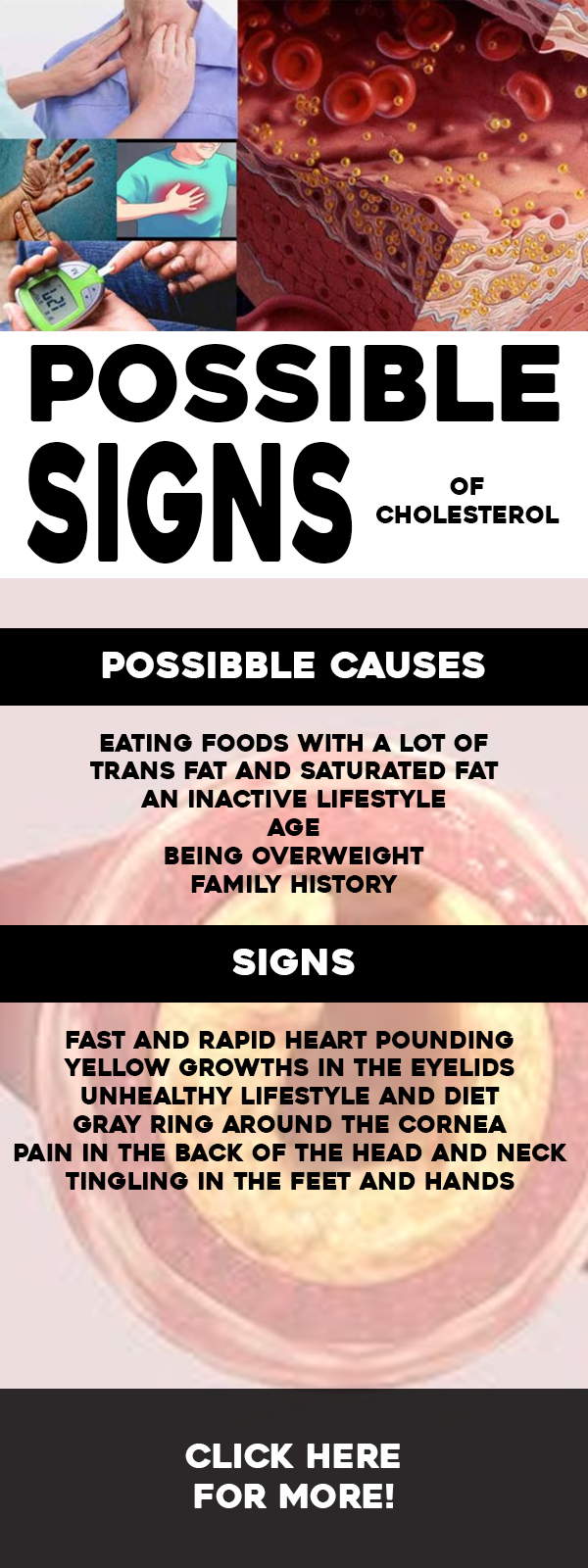Cholesterol is a fat-like substance that the liver produces. It plays a major function in the formation of cell membranes, some hormones, and vitamin D. Since, cholesterol doesn’t dissolve in water, it can pass through the body in its original form.
To transport it, particles known as lipoproteins have to help.
For this to properly work, two major forms of lipoproteins are necessary. The first one is the LDL or the bad cholesterol. This type of cholesterol can stack in arteries and cause serious health problems that in the future might cause a stroke or heart attack.
The second type is the HDL or the good cholesterol. Its function is to help transport the LDL cholesterol to the liver so that the liver will eliminate it. Therefore, the more foods you eat that contain a lot of fat, the higher the level of LDL cholesterol in the blood you will have.
In other words, you will have high cholesterol, also known as hyperlipidemia or hypercholesterolemia. If either of those types of cholesterol is high, the fatty deposits will start to stack or build up in the blood vessels.
As a result, your blood will have a difficult time flowing through the arteries. In the long run, this can cause serious problems for both the brain and the heart. In some severe cases, it might even cause death.
What Makes Cholesterol Important?
By checking your cholesterol levels, doctors will be able to calculate the risk of developing a stroke or heart attack. Also, they can determine whether you have diabetes or not. These are all important things for managing your health.
What Affects the Cholesterol?
The best way to manage your cholesterol is to watch for these things. Here are the things that can affect your cholesterol levels:
- eating foods with a lot of trans fat and saturated fat
- an inactive lifestyle
- age
- being overweight
- family history
6 Signs of High Cholesterol
Even though there are no 100% accurate symptoms of high cholesterol, there are still some alarming signs that you should consider. If you have any of them, you should get a blood test to see if you have high cholesterol.
1. Fast and Rapid Heart Pounding
Most of the time a very fast beating heart is nothing dangerous. But, in some cases, it could mean that you have suffered from a stressful situation, drugs, or anxiety. As a result, you might be having cardiovascular problems that you are not aware.
This means that you might have high cholesterol. The reason that causes the rapid beating of the heart is that of the clogging of the blood vessels and their inability to function properly. However, that doesn’t mean that if you have a fast beating heart after an exercise, you have high cholesterol.
On the contrary, the best way to find out is to get a blood test.
2. Yellow Growths In the Eyelids
If there are any painless growths in the lower or upper side of the eyelids, it could mean that you have high cholesterol. This type of growth goes by the name “xanthelasma.” It will not affect the vision, but it is a clear indicator of high cholesterol levels.
Even though you can try lasers to get it removed, the best way to avoid it permanently is to control your cholesterol.
3. Unhealthy Lifestyle and Diet
This is an important thing in life that you should pay attention to. If you are eating any fatty, unhealthy foods that contain an excessive amount of fiber, or are overweight because of them, there is a high possibility that you have high cholesterol levels.
Therefore, you need to pay close attention to what you consume on a daily basis.
4. Gray Ring Around the Cornea
When you observe your eyes, you see a gray ring around the cornea. Medical professionals call this ‘’circumferential arcus’’. Moreover, it is common for people to have it, especially for people who are older than 45 years.
Cholesterol makes this gray ring that is in the deeper portions of the cornea.
5. Pain In the Back of the Head and Neck
This kind of pain can mean that you simply need some rest, or that you have high cholesterol. The cholesterol causes some of the blood vessels to become blocked.
6. Tingling In the Feet and Hands
The high levels of cholesterol can affect many blood vessels in the body and clog them. In addition, they will put the body in some grave danger that might be a sign of a heart attack or simple problems with the nerves. What causes the excessive tickling is the lack of nutrients, oxygen and proper functioning of the blood.
What do you think? Would you agree with us? Tell us your toughs and leave us a COMMENT. If you liked this post, make sure to SHARE it with friends and family.


